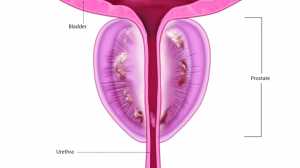Author Interviews, Prostate Cancer / 05.04.2023
Prostate Cancer: 15 Year Follow Up Compares Treatment with Surgery, Radiation and Active Surveillance
MedicalResearch.com Interview with:
Freddie C. Hamdy FRCS, FMedSci
Nuffield Professor of Surgery, University of Oxford
Jenny L. Donovan PhD, FMedSci
Professor of Social Medicine, University of Bristol
MedicalResearch.com: What is the background for this study?
Response: Prostate cancer is a common malignancy in men. Prostate cancer diagnosis is made largely through opportunistic screening with a PSA (Prostate Specific Antigen) blood test, followed by prostate biopsies. The ProtecT study, funded by the National Institute for Health and Care Research in the UK, is the largest randomised trial of treatment in screen-detected localised prostate cancer. The study began by testing 82,429 men between the ages of 50 and 69 years, across nine UK centres with a PSA blood test, followed by biopsies of the prostate if the PSA level was elevated. 2,664 men with clinically localised prostate cancer were found. From these, 1,643 (62%) agreed to be randomised to Surgery (radical prostatectomy to remove the prostate gland), Radiotherapy (external beam with a period of hormone treatment beforehand), or Active Monitoring (where men received regular checks and further investigations, with change to radical treatment as necessary). The men were carefully followed up for an average of 15 years. In parallel, the side-effects of treatments and quality of life of these men was investigated using patient-reported outcomes included in an annual study questionnaire completed for at least 12 years.
(more…)


